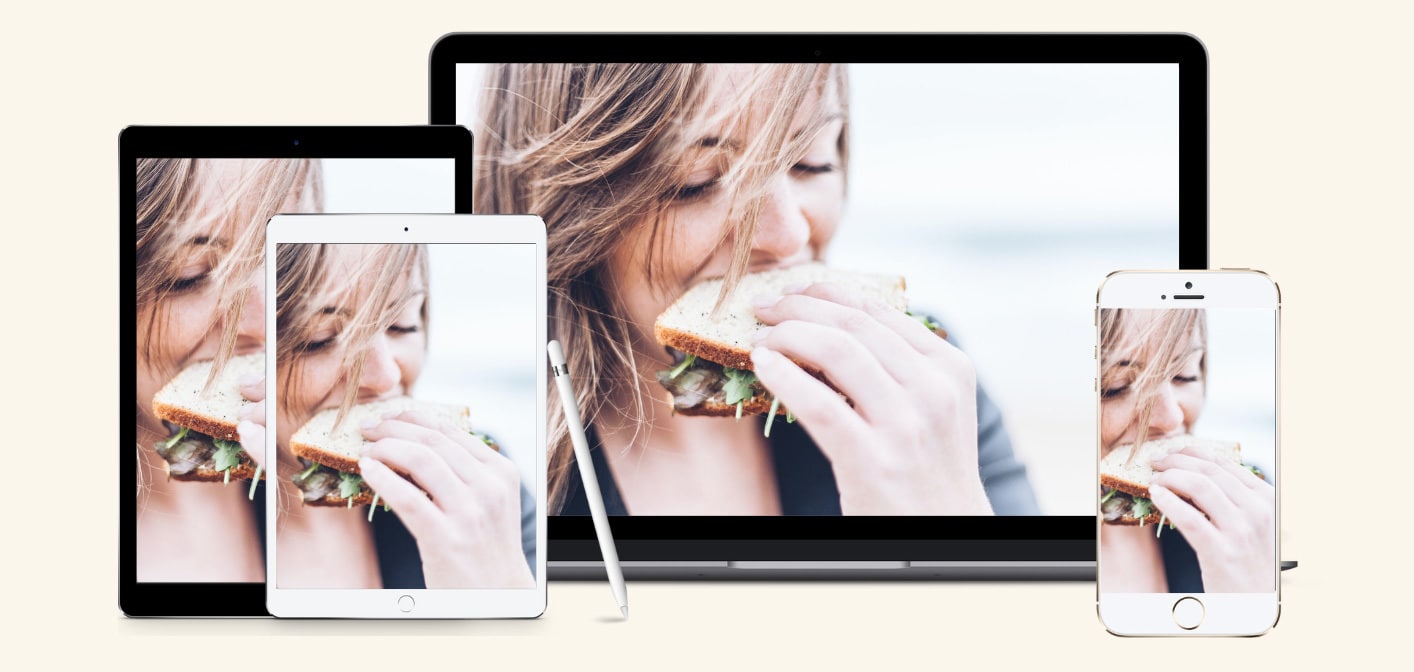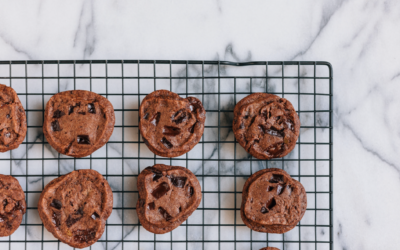Research shows nutrition in pregnancy has a big role to play in pregnancy outcomes. But there’s also a lot of weird and wacky advice around weight and food in the pregnancy space. So today I’m going to aim to clear some of that up by providing you the low-down on….
– What to eat when pregnant
– How to practise Intuitive Eating and still have a good diet in pregnancy
– Pregnancy foods to avoid
– What’s the right amount of weight gain in pregnancy
This article will go through my top 10 tips designed to help you feel more confident and empowered with your nutrition throughout your pregnancy journey.
Note: this article is for general information purposes only, and should not replace individual advice given to you by your healthcare providers.
Top 10 Tips for Nutrition in Pregnancy
1) Don’t get too fixated on the weight gain guidelines in pregnancy
In a society where a lot of emphasis is placed on appearance and body size, weight gain during pregnancy can be a sensitive subject. The “ideal” amount of weight to gain during pregnancy, remains up for debate.
There are no formal, evidence-based guidelines from UK professional bodies on the appropriate weight gain during pregnancy. The US have some recommended weight gain ranges for each stage of pregnancy, however these are not black and white and need further research.
And look, whilst it’s okay to have some gentle awareness of body weight gain, and it’s okay to have discussions around this with your midwife, the key thing to emphasise is eating as well as you can in a way that works for you, and moving in a way that you can for your body. To trust that your body is gaining what it needs to gain for your pregnancy – weight gain is normal, necessary, and your body knows what it’s doing.
Too many healthcare providers see weight gain within recommended limits as a representative of nutrition and exercise habits. Women and birthing people can gain “appropriately” and still have terrible nutrition. Likewise we may gain above or below the recommended limits and still have great lifestyle habits. Discussions about weight gain in pregnancy need to move beyond the scale.
My tip: prioritise nourishment and let your body do its thing. It knows best. Pregnancy shouldn’t be about being at a specific weight but instead about making the safest home for a growing human.
2) Let hunger guide the way
There are plenty of guidelines out there about how much food a pregnant woman should eat and we will get into some aspects of these below.
Guidelines can be helpful but don’t forget – we’re not robots. Your body’s needs will vary day to day. One of the most accurate ways to know how much food your body needs, is to be guided by your own hunger cues. This goes for any stage of life, including pregnancy. If you’re not entirely sure what the subtleties of physical hunger feel like for you, and you would like to learn more, you may benefit from diving into my free audio guide and workbook.
3) Have some gentle structure around meals
If the above feels a little too far-fetched for you, it might be helpful to implement some gentle structure around your meals and snacks. If you’ve been dieting for a while or and have been guided by calories, meal plans, points or other external methods to tell you how much to eat, you might feel a little out of touch with what your body’s asking for and so implementing some structure can be especially helpful.
Action Step: Aim for 3 meals and 2-3 snacks throughout the day. Regular eating can also help with nausea. A nutrition professional can help support you in finding a pattern that works best for you.
Our online nutrition practice offers comprehensive support via online consultations to help you navigate pregnancy nutrition with confidence, and without the side of diet – culture. We can help you with personalised nutrition and pregnancy recommendations, all whilst encouraging a healthy relationship with food. If you are interested to know more about what support looks like, you can book a free 20-minute discovery call today.
4) Your pregnant body needs carbs
Because carb-phobia is rampant, we can end up feeling guilt and shame for eating more carbs than usual in pregnancy and might even think we are causing our babies harm – this leaves us in a tough position if carbohydrates are the only thing we can stomach.
Carbohydrates are an important component of the diet in pregnancy and should represent between 45% and 60% of the calories in a healthy diet in the adult population as well as during pregnancy. So don’t feel bad for eating them!
Aim to include a source of carbohydrates at each of your meals and snacks, most of the time. This includes things like bread, potatoes, breakfast cereals, rice, pasta, noodles, corn, maize, millet and oats.
5) Consider taking a pregnancy multivitamin
Micronutrient deficiencies in pregnancy can result in pre-eclampsia, preterm deliveries, neural tube defects, and other congenital abnormalities, as well as babies who are born with low birthweight.
For this reason, It’s generally recommended that you take a pregnancy multivitamin that contains both folic acid and vitamin D, as these are the nutrients that have the most evidence for supplementation.
The right pregnancy supplement can depend on lots of factors such as your diet, medical conditions and medications. If you’re confused about what you need to supplement during pregnancy, speak to your GP or dietitian.
6) Including dates in the 3rd trimester may speed up labour
Some research suggests that eating dates in the 3rd trimester may help induce, or speed up labour. This is thought to be because dates affect oxytocin receptors and make uterine muscles respond better to oxytocin, resulting in more effective uterine contractions. Around 7-10 dates per day from the 37th week is the amount that has been studied, and is recommended in those who do not have contraindications*.
Note: this may not be indicated if you have conditions like gestational diabetes, so it’s important to check with your midwife before eating this number of dates.
7) Oily fish is good for baby’s brain development
Oily fish is the best source of omega 3’s, a type of fat that helps with the optimal growth and brain and nervous system development of the foetus.
Fish that tend to be high in Omega and low in mercury (which we don’t want too much of in pregnancy) include: salmon, Pollock, Herring, Sardines, Cod, Mackerel (not king mackerel). It’s recommended to aim for two portions of fish a week, one of which is oily. 140g is a serving.
Other sources of Omega 3 include chia seeds, ground linseed, hemp seeds and walnuts, and rapeseed oil but these aren’t as well absorbed as fish.
If you don’t eat fish you can chat to your healthcare provider about an omega 3 supplement. It’s also included in some pregnancy multivitamins.
8) Including enough fibre and fluid can help prevent constipation
Eating plenty of fibre-rich foods during pregnancy can help preventing constipation, as well as reducing risks of preeclampsia risk. Opting for wholegrain options of grains like bread and pasta, eating legumes such as lentils or baked beans, and getting your 5-a-day can all help up your fibre intake.
Another tip for preventing constipation is to make sure you drink enough fluids. You want your pee to be a light yellow so if it’s looking a little dark, try to up your water intake.
9) Pregnancy foods to avoid
Food safety is extra important in pregnancy. Your unborn baby is more vulnerable to certain food borne bacteria than you are. The NHS have a great resource on this that you can read here.
10) Your relationship with food is just as (if not more) important as what you eat
Research shows disordered eating can affect around 30% of pregnant women and approx 7.5% of women at their first ultrasound were suffering from a diagnosable eating disorder during pregnancy. And it’s often not picked up.
If you find you are
- frequently dieting
- have anxiety associated with food, or eating
- have feelings of guilt or shame associated with your eating
- are preoccupied with your weight, shape and image and it negatively impacts your quality of life
- feel a loss of control around food
- feel you need to use exercise to compensate for food eaten…
…you may be displaying some signs of difficulties with food.
Many women find pregnancy to be a motivator to work on healing their relationship to food and body. After all…your little one is eventually going to be learning from you when it comes to food and nutrition. If this sounds like you…get in touch today. We love supporting mums and birthing people to-be with personalised nutrition in pregnancy, all whilst encouraging a healthy relationship with food.
If you have a current or past eating disorder, it’s important that you make your healthcare team aware of this, and reach out to an eating disorder specialist or mental health professional for support. It’s also a good idea to check in on yourself regularly and to have an awareness of the symptoms of your eating disorder and potential triggers, both during pregnancy and after the birth of your baby.
In summary…
There is no such thing as the perfect diet in pregnancy. Don’t forget that your mental health and overall wellbeing are going to affect your baby just as much (if not more) than what you eat. If pregnancy nutrition is stressing you out just remember…the key thing in pregnancy nutrition is adequacy. This means making sure you’re eating enough and (when you feel up to it), a wide variety of foods so you’re getting all the nutrients you need to look after yourself and your growing baby!
Our online nutrition practice offers comprehensive support via online consultations to help you navigate pregnancy nutrition with confidence, and without the side of diet – culture. We can help you with personalised nutrition and pregnancy recommendations, all whilst encouraging a healthy relationship with food. If you are interested to know more about what support looks like, you can book a free 20-minute discovery call today via the website. You can also browse our article library here to get more of a feel for our approach.





